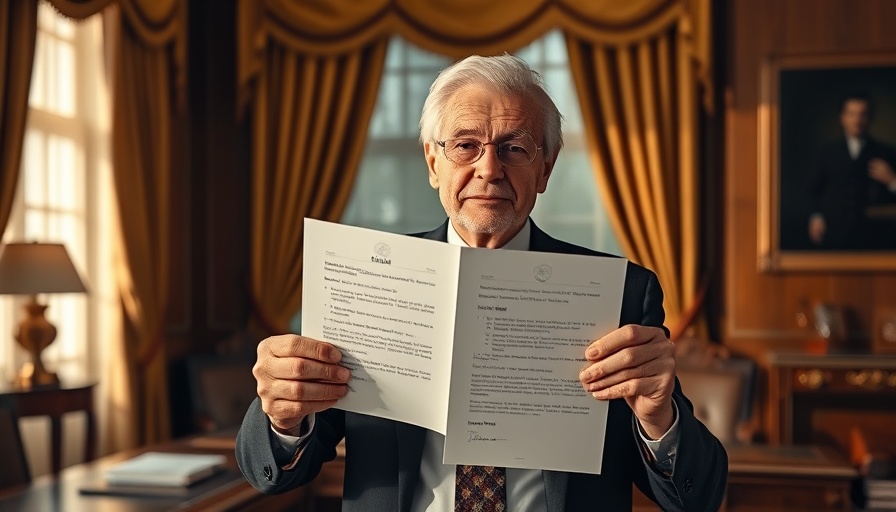
Understanding Trump's Executive Order on Climate Laws
In a bold move, President Donald Trump has directed the Department of Justice (DOJ) to investigate and block state and local climate laws, particularly those he deems unconstitutional or overly restrictive on the energy sector. This directive targets laws like "climate superfund" initiatives implemented in states such as New York and Vermont, which aim to address environmental issues through funding despite pushback from fossil fuel interests.
Impact on Energy Affordability and Public Health
While Trump argues that these state laws hinder energy production and affordability, critics, including environmental groups and legal experts, argue the executive order prioritizes polluters' interests over public health. The conflicting perspectives illustrate the complex relationship between energy policies and climate change—one that balances immediate economic concerns against long-term environmental sustainability.
The Role of the DOJ in Climate Regulation
Experts are raising concerns about the legal authority of the DOJ to invalidate state-level climate regulations. This raises crucial questions about the federal government’s power versus states’ rights in environmental legislation. As climate-related emergencies continue to escalate, the implications of this executive order could have lasting effects on both local governance and national climate strategies.
Diverse Perspectives in Climate Policy
This controversy opens the floor for debate on the effectiveness and fairness of federal interventions in state climate strategies. While fossil fuel advocates see this as a necessary step to ensure energy affordability, environmentalists view it as a regression in the fight against climate change. Such dialogue is essential as the U.S. navigates its energy future amidst increasing calls for sustainable practices.
Conclusion: Why It Matters
As Trump takes aim at these climate laws, it emphasizes the ongoing battle between climate action and economic interests. For residents and local officials, staying informed and engaged in this debate is crucial. The delicate balance must be understood—ensuring a sustainable future while also considering economic implications.
 Add Row
Add Row  Add
Add 




 Add Row
Add Row  Add
Add 



Write A Comment